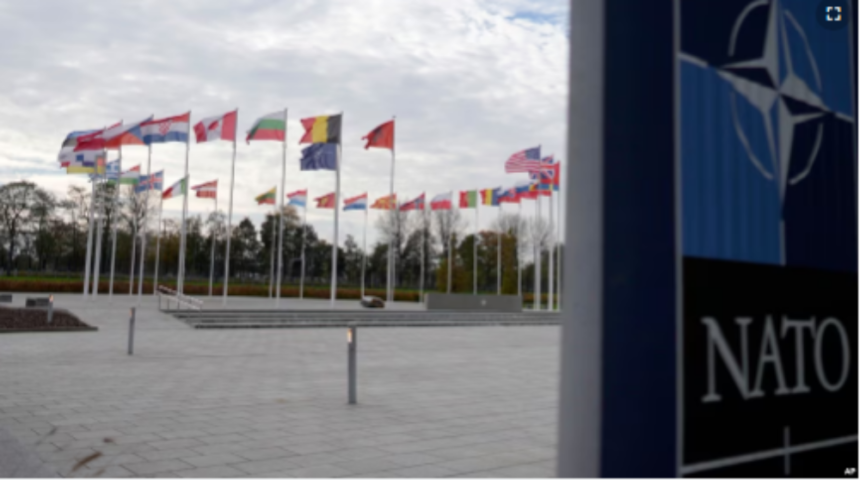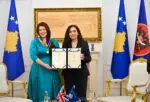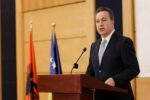On November 26, ambassadors from Ukraine and NATO’s 32 member states will meet in Brussels to discuss Russia’s new experimental hypersonic missile, which it launched at Ukraine the previous week. This missile, with a medium-range capability, is a significant escalation in Russia’s ongoing military assault on Ukraine.
Russia’s New Missile Strike:
On November 21, Russia launched a missile attack on the Ukrainian city of Dnipro, with Russian President Vladimir Putin confirming that the missile used was the newly developed Oreshnik. The missile’s use marks a serious escalation in the conflict, and Putin stated that this strike was a response to Ukrainian attacks within Russian territory, carried out with weapons supplied by the United States and the United Kingdom.
Putin further warned that Russia reserves the right to target military structures in countries that allow Ukraine to use weapons against Russia, signaling a potential broadening of the conflict.
Ukraine’s Response and NATO Consultation:
In response to the missile strike, Ukrainian President Volodymyr Zelensky called for upgraded air defense systems capable of countering this new threat. He emphasized the urgent need for modern defense technologies to protect Ukraine from Russia’s evolving military tactics.
Ukraine hopes the NATO-Ukraine Council meeting will yield “concrete and meaningful” results. However, NATO diplomats have tempered expectations, suggesting that there may be no major breakthrough during the consultations set to take place on the afternoon of November 26 at NATO’s Brussels headquarters.
NATO’s Role Amid Rising Tensions:
The meeting comes at a time of heightened tensions regarding Ukraine’s defense and potential changes in Western support. The recent re-election of Donald Trump as the U.S. President has raised questions about the future of U.S. military aid to Ukraine. Trump has previously questioned the continuation of U.S. support and pledged to swiftly end the war Russia initiated in Ukraine in 2022.
On the Battlefield:
In eastern Ukraine, Ukrainian forces are facing mounting challenges in halting Russia’s advance. Despite continued international support, the war remains at a critical juncture, with Russia making incremental gains on the ground.
NATO-Ukraine Council and Future Collaborations:
Since its establishment in 2023, the NATO-Ukraine Council has allowed Ukraine to call for meetings with NATO whenever it deems necessary. This council serves as a platform for increased coordination and strategic discussions, especially as the war with Russia continues to escalate.







